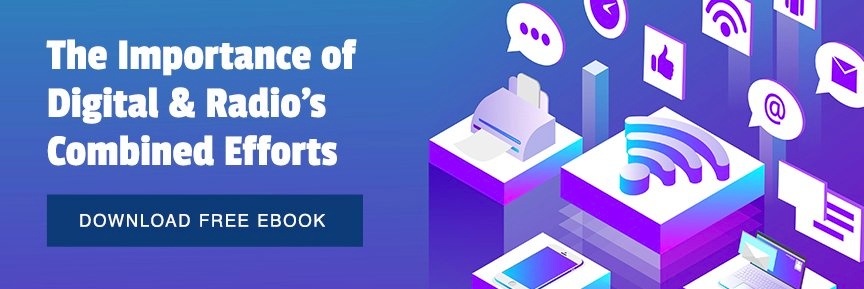As a small business owner, it's not easy for you to compete with the big guys. Big business has the advantage of greater brand awareness, economies of scale that help them keep costs and prices low, and access to capital that often allow them to adjust to changing market conditions far more quickly than you can.
But while competing with big business is challenging, you can leverage many of the marketing strategies they use to win market share. You don't need to match their ad spend for these strategies to work. The first step is understanding the various options available to you.
Content marketing
The phrase "content marketing" is ubiquitous in industry publications. But far from just being a buzzword, content marketing is a powerful tool that you can use to build brand awareness, acquire new customers, and retain existing ones. It involves producing written, audio, and visual content that broadly educates or alludes to a company's product or brand and its distribution to a targeted audience.
You can create a corporate blog that not only gets the word out about your products and services but also helps to humanize your brand. A well-designed and thought-out blog with rich media like pictures and videos can hook consumers and convert them into customers. Best of all, you don't need six figures to get started. In fact, a relatively plain-looking blog can be more effective than a flashy one with the right combination of engaging content, search engine optimization (SEO), and calls-to-action.
Inbound marketing
A strategy closely paired with content marketing, inbound marketing attracts and converts sales leads by drawing online traffic to a specific landing page. A landing page is a single static webpage that captures consumer information that a business can use to convert them into customers. Inbound marketing leverages content marketing, SEO, social media marketing, and email marketing, among other tactics, to drive online consumers to a business' landing page.
Branded podcasts
Branded podcasts are another method of growing awareness of your brand, traffic to your website, and consumers to your landing page. Hosting a periodic podcast where you, your management team members, and industry guests can discuss industry developments will broaden public awareness of your product line and establish you as an expert in the field. This added authority can deepen consumer trust in your brand, which can impel purchases and brand loyalty.
Branded podcasts are a relatively new channel, and so you may face less competition from large rivals if you try this strategy.
Radio endorsements
Radio personality endorsements can also help increase the credibility of your brand with the buying public. By sponsoring radio programs, you can increase your presence in local markets. And with radio sponsorships, you can get well-known radio personalities to endorse your brand.
Big businesses often invest heavily online, and you can take advantage of their absence by investing not only in radio sponsorships but radio ad buys as well. Frequent ad mentions can prime consumers to buy your product and help you define your brand, rather than your competition defining it for you.
Referral Programs
Referral programs are especially useful in local markets and with products that may require a high degree of consumer trust to purchase. A referral program incentivizes existing customers to recruit and convert new consumers into customers. You can offer existing customers discounted or free products, cash, or other prizes for each customer they recruit. While this may seem costly, the next time you evaluate your customer acquisition costs, ask yourself if a one-time 50 percent off coupon is worth your marketing expense for every new paying customer.
Social media marketing
A lot has been written about social media marketing. Many business owners, marketers, and others have gotten lost in the vast amount of strategies, tactics, and options that social media provides. You may see your larger rivals with a presence on every single platform from Facebook to Quora. As a small business owner, your best bet is to go where your existing customers are, and future customers are likely to be. Establish a presence on those platforms only and use them to engage people about your brand and products.
You may also want to consider social media ads as well. But don't feel you need to match your rivals in ad spend. Instead, focus on crafting compelling creative content that delivers qualified leads to you.
Email marketing
Email marketing is also an effective way to drive traffic to your website or landing page. Email marketing campaigns often have a very high Return On Investment (ROI), in part because the costs are usually quite low. You need compelling copy that you'll need to release at intervals. You also need an automation tool that releases emails at preset times.
As you can see, there are a variety of tools at your disposal to help you build your brand and your business. But it takes time and effort to implement them. And implementing them effectively often takes business owners a lot of trial and error.
Between running the business, managing staff, and handling one of the dozen other responsibilities that come with being in charge, you probably don't have time to become as well-versed in all these options as you would like. The best way to move forward is by working with an experienced media partner who can guide you through these strategies and help you establish those that work best for your business.


